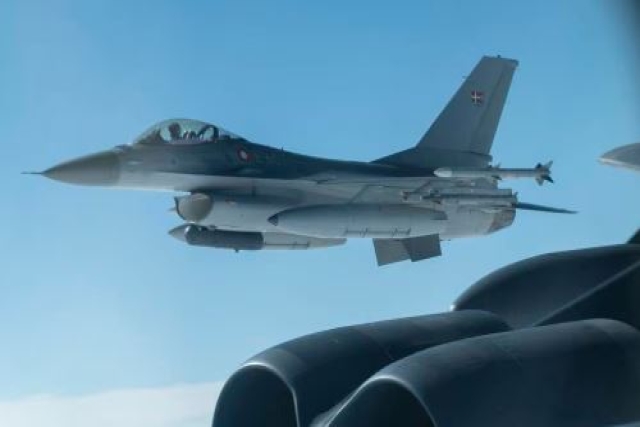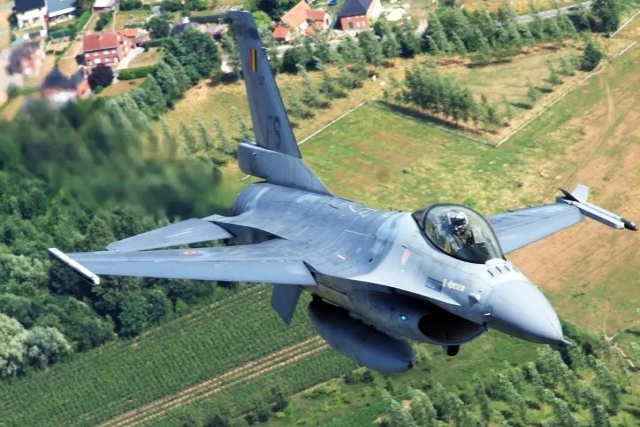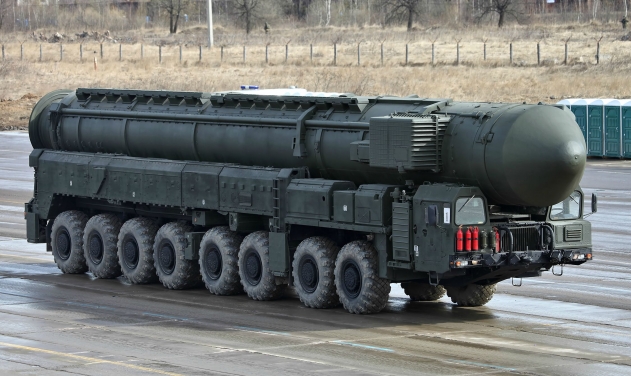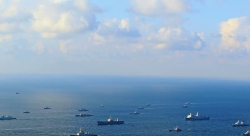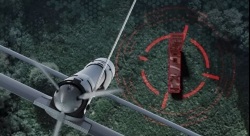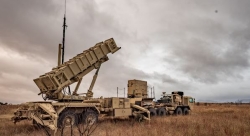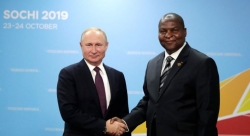Ukraine Allowed to Strike Inside Russia with U.S. Arms But Only Near Kharkiv
American approval allows Ukrainian counter-fire operations near Kharkiv, confirms Zelensky's spokesperson.
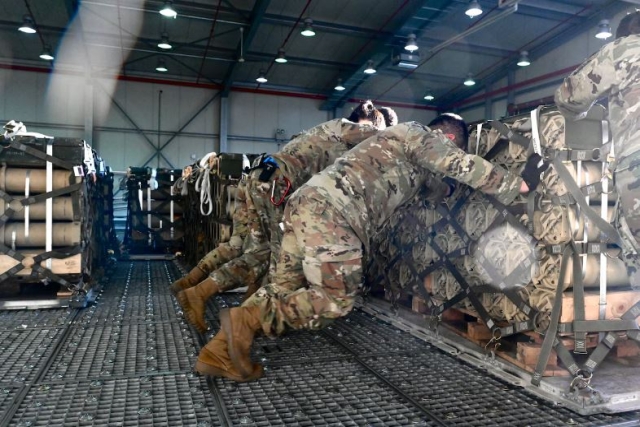
The U.S. has authorized Ukraine to strike Russian territory near Ukraine's second-largest city Kharkiv using American-supplied weapons, as confirmed by President Volodymyr Zelensky's spokesperson, Serhii Nykyforov, on May 31.
According to a Politico report on May 30, unnamed American officials indicated that President Joe Biden's administration approved Kyiv's attacks on Russian targets "solely near the area of Kharkiv." This decision was corroborated by multiple outlets.
“The president recently directed his team to ensure that Ukraine is able to use U.S.-supplied weapons for counter-fire purposes in the Kharkiv region so Ukraine can hit back against Russian forces that are attacking them or preparing to attack them,” a U.S. official told the Reuters, AFP and The Associated Press news agencies.
Nykyforov expressed support for this move in an interview with The Guardian, stating it would enhance Ukraine's capability to counter Russian forces near the border. "It will significantly boost our ability to counter Russian attempts to mass across the border," Nykyforov said.
He highlighted that the U.S. permission allows strikes on Russian soldiers and command centers using U.S.-provided weapons. However, the Pentagon maintained on May 30 that there had been "no change" in policy regarding U.S. arms usage without directly addressing attacks near Kharkiv Oblast.
Washington continues to restrict Ukraine from utilizing long-range weapons for deeper strikes inside Russia. Zelensky has shown interest in deploying long-range weapons such as the British-made Storm Shadow missiles. Nevertheless, the U.K. has yet to fully authorize their use, possibly awaiting a clear stance from the White House. Zelensky mentioned the issue was raised twice with U.K. officials but remains dependent on broader international consensus, particularly the U.S. position.
Ukrainian Officials Express Frustration Over Restrictions, Prompting International Calls for Reconsideration
Ukrainian officials have expressed frustration over existing restrictions, citing impediments to addressing Russian forces near Kharkiv Oblast in May. The debate has prompted calls from various nations, including Lithuania, Czechia, Finland, the United Kingdom, and Sweden, as well as NATO Secretary General Jens Stoltenberg, urging allies to reconsider constraints on Ukrainian military actions.
Denmark has greenlit Ukraine’s usage of Danish-supplied F-16s against military targets on Russian soil. Germany has also suggested Ukraine could use weapons supplied by Western countries to defend itself. “We are jointly convinced that Ukraine has the right, guaranteed under international law, to defend itself against these attacks,” a government spokesperson said in a statement cited by Al Jazeera. “It can also use the weapons supplied for this purpose in accordance with its international legal obligations; including those supplied by us.”
However, Belgian Prime Minister Alexander De Croo clarified that Ukrainian forces are permitted to employ Belgian-donated F-16s exclusively within Ukrainian territory. Both countries intend to deliver F-16s to Ukraine in 2024.
Russian Officials Warn of Escalation
Russian President Vladimir Putin cautioned of "serious consequences," emphasizing nuclear strength in response to potential policy shifts by Ukraine's Western allies.
Andrei Kartapolov, head of Russia's lower house defense committee, stated Moscow's intent to retaliate asymmetrically to Ukrainian attacks using U.S.-supplied weaponry.
Dmitry Medvedev, a senior Russian security official, asserted that Russia's discussion of tactical nuclear weapon use against Ukraine was not a bluff, warning of the potential for escalation to all-out war in the ongoing conflict with the West. Medvedev highlighted on Telegram that the situation was unfolding in line with worst-case scenarios, leaving open the possibility of further escalation.
